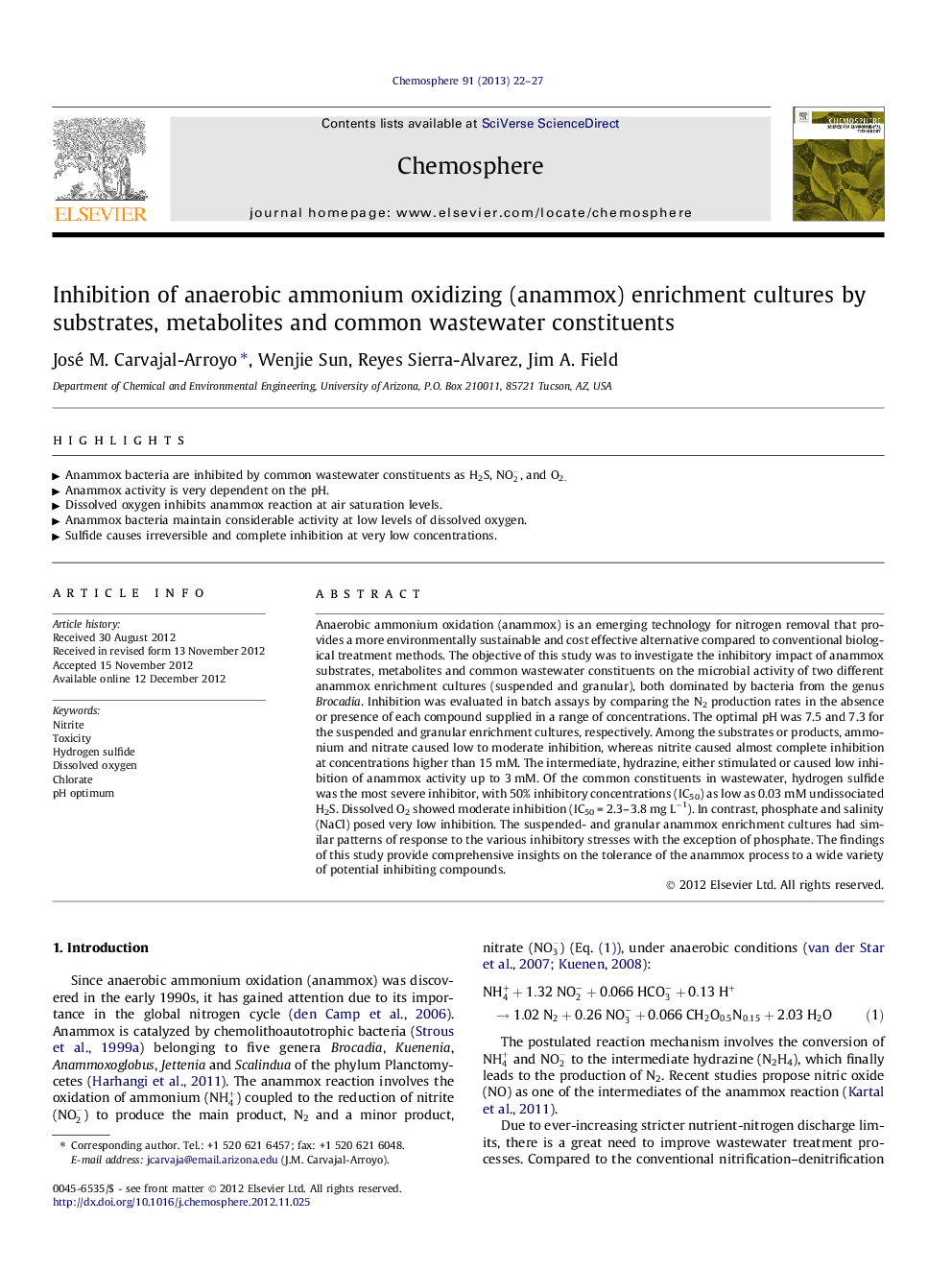| Article ID | Journal | Published Year | Pages | File Type |
|---|---|---|---|---|
| 4409297 | Chemosphere | 2013 | 6 Pages |
Anaerobic ammonium oxidation (anammox) is an emerging technology for nitrogen removal that provides a more environmentally sustainable and cost effective alternative compared to conventional biological treatment methods. The objective of this study was to investigate the inhibitory impact of anammox substrates, metabolites and common wastewater constituents on the microbial activity of two different anammox enrichment cultures (suspended and granular), both dominated by bacteria from the genus Brocadia. Inhibition was evaluated in batch assays by comparing the N2 production rates in the absence or presence of each compound supplied in a range of concentrations. The optimal pH was 7.5 and 7.3 for the suspended and granular enrichment cultures, respectively. Among the substrates or products, ammonium and nitrate caused low to moderate inhibition, whereas nitrite caused almost complete inhibition at concentrations higher than 15 mM. The intermediate, hydrazine, either stimulated or caused low inhibition of anammox activity up to 3 mM. Of the common constituents in wastewater, hydrogen sulfide was the most severe inhibitor, with 50% inhibitory concentrations (IC50) as low as 0.03 mM undissociated H2S. Dissolved O2 showed moderate inhibition (IC50 = 2.3–3.8 mg L−1). In contrast, phosphate and salinity (NaCl) posed very low inhibition. The suspended- and granular anammox enrichment cultures had similar patterns of response to the various inhibitory stresses with the exception of phosphate. The findings of this study provide comprehensive insights on the tolerance of the anammox process to a wide variety of potential inhibiting compounds.
► Anammox bacteria are inhibited by common wastewater constituents as H2S, NO2-, and O2. ► Anammox activity is very dependent on the pH. ► Dissolved oxygen inhibits anammox reaction at air saturation levels. ► Anammox bacteria maintain considerable activity at low levels of dissolved oxygen. ► Sulfide causes irreversible and complete inhibition at very low concentrations.
